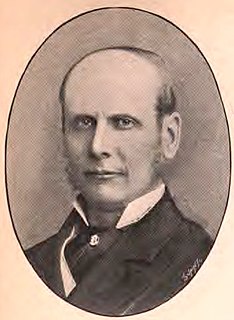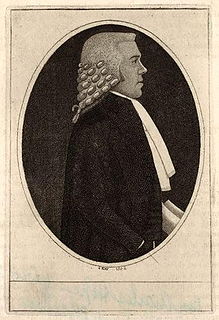
The Restoration of the English monarchy took place in the Stuart period. It began in 1660 when the English, Scottish and Irish monarchies were all restored under King Charles II. This followed the Interregnum, also called the Protectorate, that followed the Wars of the Three Kingdoms.

William Cavendish, 1st Duke of Devonshire was an English soldier, nobleman, and Whig politician who sat in the House of Commons from 1661 to 1684 when he inherited his father's peerage as Earl of Devonshire. He was part of the "Immortal Seven" group that invited William III, Prince of Orange to depose James II of England as monarch during the Glorious Revolution, and was rewarded with the elevation to Duke of Devonshire in 1694.

Anthony Ashley Cooper, 1st Earl of Shaftesbury PC, known as Anthony Ashley Cooper from 1621 to 1630, as Sir Anthony Ashley Cooper, 2nd Baronet from 1630 to 1661, and as The Lord Ashley from 1661 to 1672, was a prominent English politician during the Interregnum and during the reign of King Charles II. A founder of the Whig party, he is also remembered as the patron of John Locke.

John Blair Balfour, 1st Baron Kinross was a Scottish lawyer and Liberal politician who sat in the House of Commons from 1880 to 1899.

Sir John Archibald Murray of Henderland, Lord Murray, FRSE (1778–1859) was a Scottish judge and Senator of the College of Justice.

Rt Hon Lord Charles Hope FRSE was a Scottish politician and judge.

Robert Dundas of Arniston, the younger, FRSE was a Scottish judge. He served as Solicitor General for Scotland from 1742 to 1746, as Lord Advocate from 1754 to 1760, and as Member of Parliament for Midlothian from 1754 to 1761. He was Lord President of the Court of Session from 1760 to 1787, losing his popularity for giving his casting vote against Archibald Douglas in the famous Douglas Cause.

George Mackenzie, 1st Earl of Cromartie FRS (1630–1714), known as Sir George Mackenzie, 2nd Baronet from 1654 to 1685 and as The Viscount of Tarbat from 1685 to 1703, was a Scottish statesman.

William Graham, 7th Earl of Menteith, 1st Earl of Airth (c.1591–1661), was a 17th-century Scottish nobleman. A supporter of King Charles I, he held offices including Lord President of the Court of Session and was a Privy Counsellor. Although he fell from favour, he continued to support the Royal cause during the Wars of the Three Kingdoms, when his estates were damaged by the troops of Oliver Cromwell. He married Agnes, daughter of Patrick, Lord Gray, and had a son John Graham, Lord of Kinpont, who had a son William Graham, 8th Earl of Menteith who prior to his death was styled William Graham, Lord of Kinpont.
Sir Archibald Primrose, 1st Baronet, Lord Carrington was a notable Scottish lawyer, judge, and Cavalier.

The Battle of Dunaverty involved a battle and the siege of Dunaverty Castle in Kintyre, Scotland in 1647. The events involved the Covenanter Army under the command of General David Leslie on one side and 200–300 Highland troops under the command of Archibald Og of Sanda on the other.

Tiverton was a constituency located in Tiverton in east Devon, formerly represented in the House of Commons of the Parliament of the United Kingdom. Enfranchised as a parliamentary borough in 1615 and first represented in 1621, it elected two Members of Parliament (MPs) by the first past the post system of election until 1885. The name was then transferred to a county constituency electing one MP.
James Roberton, Lord Bedlay was a Scottish advocate and judge. He was born to Archibald Roberton of Stainhall, youngest son of John Roberton 9th Laird of Earnock, and Elizabeth Baillie, daughter of Robert Baillie of Jerviston. He inherited Bedlay Castle from his father, who bought it from James, the 8th Lord Boyd. He became Lord Bedlay upon the occasion of being raised to the judicial bench in 1661.
Sir Alexander Seton of Pitmedden, 1st Baronet, Lord Pitmedden was a Scottish advocate, a Senator of the College of Justice, a Lord of Justiciary, and a Commissioner.
John Maitland, 1st Earl of Lauderdale, Viscount of Lauderdale, Viscount Maitland, and Lord Thirlestane and Boltoun, was President of the Parliament of Scotland as well as the Privy Council, a lawyer and a judge, who sided with the Parliamentarian cause during the Civil War.

Iain Alexander Scott Peebles, Lord Bannatyne is a Senator of the College of Justice, a judge of the High Court of Justiciary and Court of Session in Scotland.
Adam Houghton, also known as Adam de Houghton, was Bishop of St David's from 1361 until his death and Lord Chancellor of England from 1377 to 1378.
Sir James Lockhart, Lord Lee was a Scottish courtier, politician and judge, a royalist commander of the Wars of the Three Kingdoms.
Sir John Hope, Lord Craighall (1605?–1654) was a Scottish judge.
Adam Cusack (c.1630–1681) was an Irish landowner, barrister and judge of the seventeenth century.












